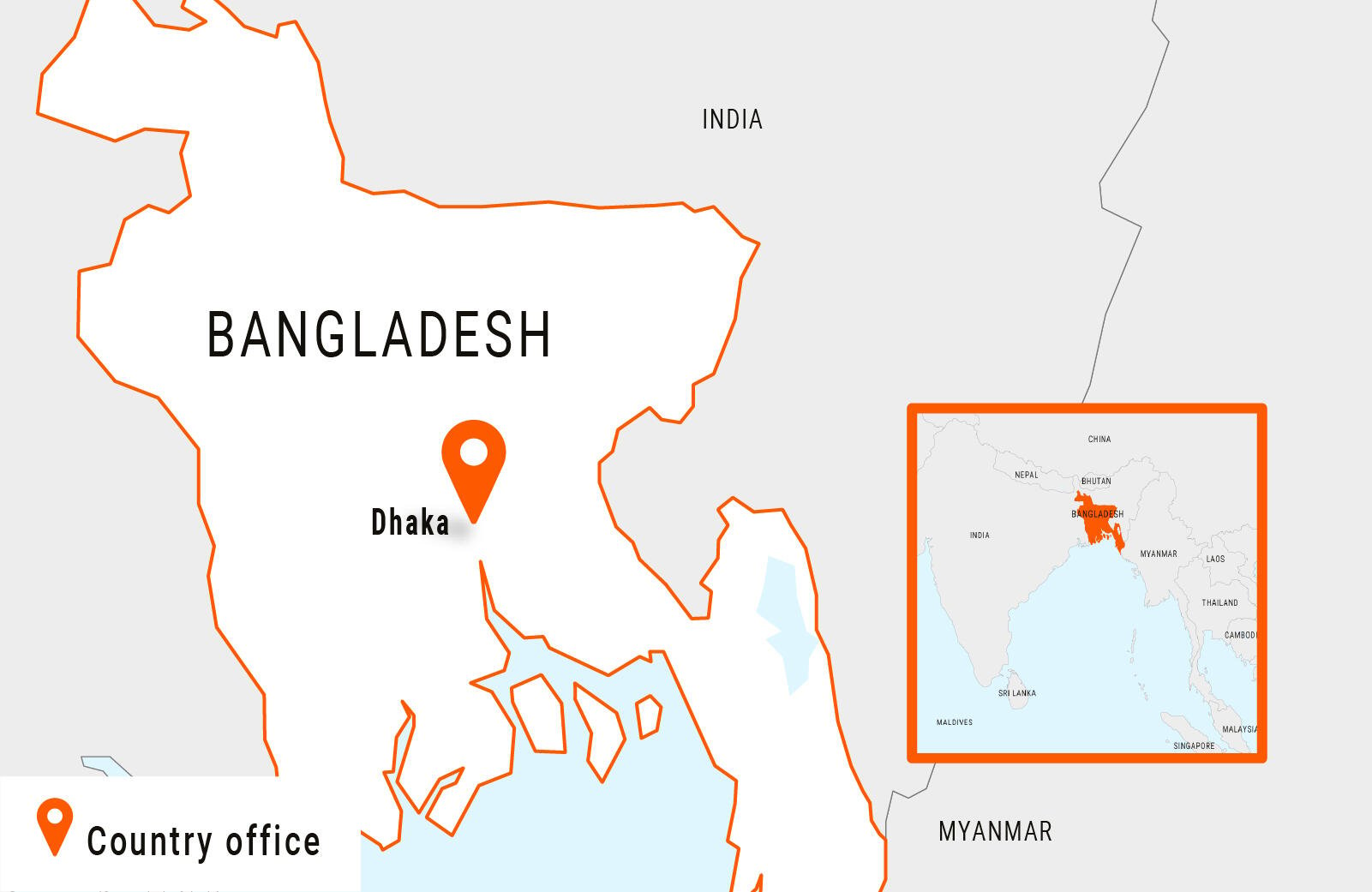There, the Norwegian Refugee Council (NRC) helps to provide clean drinking water and sanitation to over 100,000 people every year, as well as running education and protection programmes, preparing for emergencies, and delivering vital legal assistance. In total, our support reaches over 230,000 people each year.
What’s happening in Bangladesh?
In 2017, almost 750,000 Rohingya refugees fled across the border from neighbouring Myanmar – joining families from previous waves of displacement and bringing the total number of Rohingya refugees in Bangladesh to over a million.
Most of these families live in Cox’s Bazar, a mega-camp known as the world’s largest refugee settlement. Conditions there are extremely challenging, with flimsy bamboo shelters perched precariously on land prone to flooding, landslides and cyclones. Families have limited access to clean water, sanitation and healthcare, and many children and young people are missing out on education.
Refugees aren’t permitted to work in Bangladesh, despite repeated requests for them to be allowed to earn an income. This means that Rohingya families can’t support themselves in exile but also can’t return home for fear of violence – instead, they are trapped in limbo and considered stateless under international law.
Our response
We’re working with our partners in the following areas:
- Water, sanitation and hygiene – building latrines, installing water pumps and solid-waste management, providing solar lights, setting up recycling plants, and helping to fix damage caused by storms, flooding and other disasters.
- Education – providing formal and informal learning, teacher training, life skills sessions, skills development, and psychosocial support
- Information, counselling and legal assistance – advocating for refugees, helping them obtain residency and ID documents, and supporting them with housing, land and property rights.
- Emergency response – maintaining an emergency staff roster to provide multipurpose cash assistance, hygiene and shelter support, distribute contingency supplies, and share emergency awareness with affected host and refugee communities.
Our operations
NRC office established: 2018
Areas of operation: Cox’s Bazar District, Khulna District, Feni District, Noakhali District, Satkhira District
Country Director: Dipankar Datta
Contact: bd.info@nrc.no

Our impact
In 2024, we assisted 223,166 people through our programmes in Bangladesh:
-
7,513Education
-
38,220Shelter and settlements
-
49,910Information, counselling and legal assistance
-
100,701Water, sanitation and hygiene
-
42,446other NRC activities
Note: some people received more than one type of assistance.








